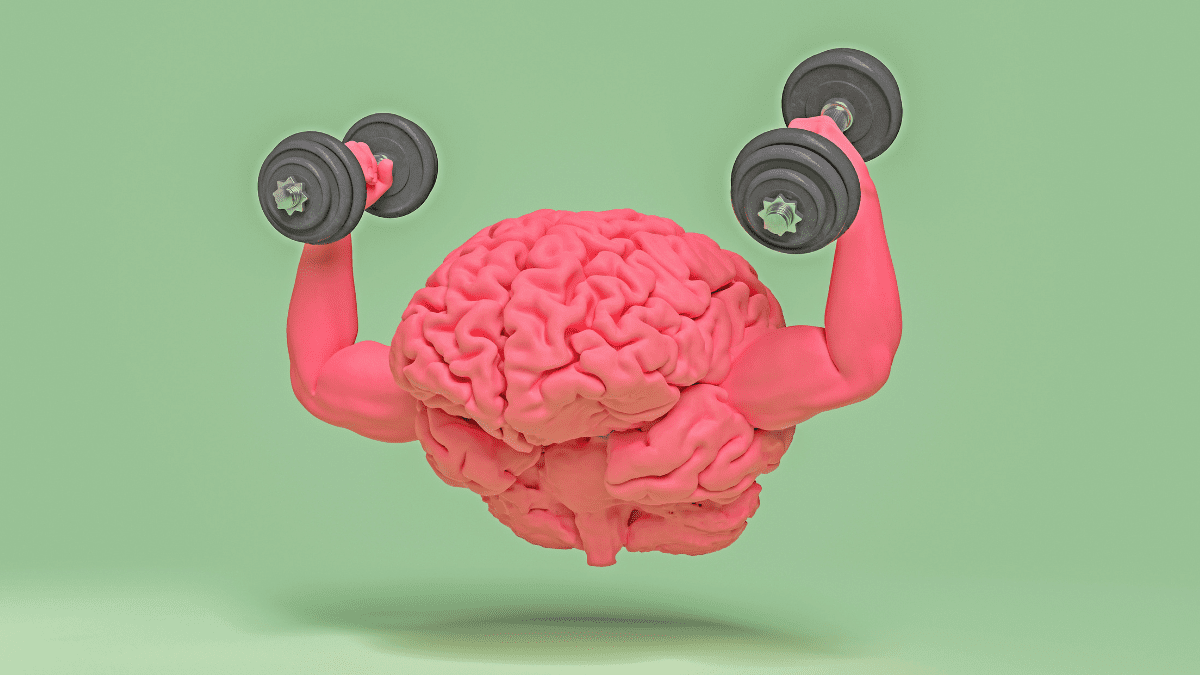Conscious Living: The Powerful Shift That Changes Everything
Conscious living is the game-changer you’ve been missing. Break free from autopilot, reclaim your joy, and awaken to a life of purpose, clarity, and true happiness. Are you ready?

Are you truly living, or just going through the motions? Conscious living is the powerful shift that transforms life. It brings clarity, purpose, and deep happiness. Yet, most people live on autopilot, disconnected from the present moment. They react instead of choosing. They chase instead of experiencing.
Happiness does not come from external success. It comes from awareness—knowing yourself, making intentional choices, and breaking free from old patterns. Living consciously is about waking up to your thoughts, emotions, and actions. When you shift into awareness, life changes. Stress decreases, relationships improve, and inner peace grows.
One essential part of conscious living is emotional intelligence. If you struggle with relationships or feel stuck in toxic cycles, learn how building emotional intelligence can help you connect with yourself and others on a deeper level.
Now, let’s explore what conscious living truly means and why it is the key to lasting happiness.
What Is Conscious Living and Why Does It Matter?
Most people go through life on autopilot. They wake up, follow routines, and react to situations without much thought. But living consciously changes everything. It means being fully present, making intentional choices, and aligning actions with deeper values.
How Conscious Living Breaks the Autopilot Cycle
When you live unconsciously, your mind is always in the past or future. Worry, stress, and distractions take over. You rush through tasks without truly experiencing them. This creates dissatisfaction and drains energy. The power of conscious living lies in awareness. The moment you wake up to your thoughts and behaviors, you regain control.
Studies confirm that living with awareness improves emotional well-being and decision-making. It helps reduce stress, enhance focus, and create deeper connections.
The Key Elements of Conscious Living
Conscious living is not about perfection. It is about awareness and small, mindful choices. Here are the core elements that define this way of life:
- Self-awareness: Observe your thoughts, emotions, and habits without judgment.
- Mindful decision-making: Choose actions that align with your values.
- Emotional balance: Respond to situations with clarity, not impulse.
- Gratitude and presence: Focus on the moment rather than chasing the next thing.
Why Conscious Living Leads to True Happiness
Happiness is often linked to external achievements. But true fulfillment comes from within. When you live consciously, you appreciate small moments. You feel more aligned, less stressed, and deeply connected to life.
Signs you are embracing conscious living:
- Feel more peace, even in uncertainty.
- Respond to challenges with patience, not frustration.
- Prioritize meaningful experiences over superficial distractions.
The shift to conscious living is powerful. It transforms not only how you think but also how you feel and interact with the world. Next, let’s explore the science behind conscious living and happiness and why awareness is the key to lasting joy.
The Science Behind Conscious Living and Happiness
Happiness is not just a feeling. It is a state of mind shaped by awareness, habits, and choices. Conscious living plays a key role in this process. When you live with intention, your brain rewires for positivity, stress decreases, and overall well-being improves.
How Conscious Living Rewires the Brain
Your brain is always adapting. When you live unconsciously, it reinforces stress, worry, and negative thought patterns. But living consciously shifts brain activity from survival mode to mindfulness. This increases emotional balance and long-term happiness.
Neuroscientific research shows that mindfulness strengthens neural pathways linked to emotional regulation and mental clarity. With regular practice, conscious awareness helps override automatic reactions and promotes a more peaceful mindset.
The Link Between Conscious Living and Emotional Well-Being
People often chase happiness through external achievements. But studies show that true fulfillment comes from inner awareness, not material success. Conscious living enhances emotional intelligence, making it easier to manage stress and build meaningful relationships.
Benefits of conscious living on mental health:
- Reduces overthinking and emotional reactivity.
- Increases feelings of gratitude and contentment.
- Strengthens the ability to focus and stay present.
Why Awareness is the Key to Happiness
Happiness is not found in the future—it exists in the present. Yet, many people miss it by focusing on worries, regrets, or endless to-do lists. Living consciously shifts this perspective. It teaches you to appreciate each moment fully.
Simple ways to cultivate awareness:
- Practice mindful breathing to ground yourself in the now.
- Observe thoughts without judgment instead of reacting.
- Slow down and engage deeply with daily experiences.
Making Conscious Living a Daily Habit
The more you practice, the easier it becomes. Small moments of mindfulness add up, creating lasting change. Over time, conscious living leads to greater happiness, inner peace, and a stronger sense of purpose.
Now, let’s explore the key pillars of conscious living for a happier life and how to integrate them effortlessly.

The Key Pillars of Conscious Living for a Happier Life
Happiness does not come from chasing success. It comes from awareness, balance, and alignment. Conscious living is built on key pillars that help you shift from stress to clarity, from reaction to intention. When you integrate these into daily life, fulfillment follows naturally.
Mindful Awareness: The First Step Toward Conscious Living
Most people move through life without noticing their thoughts or emotions. They react rather than respond. But conscious living requires awareness. When you observe your thoughts, you begin to understand patterns that shape your experiences.
Research shows that mindfulness improves emotional regulation and reduces stress. Practicing awareness helps you break free from unconscious habits and create space for better choices.
Ways to develop mindful awareness:
- Take a few deep breaths before responding to situations.
- Observe thoughts without attaching to them.
- Focus on sensations, sounds, and surroundings to stay present.
Intentional Choices: Aligning Actions with Values
Living on autopilot often leads to unfulfilling routines. But living consciously means making choices that align with your values. Each decision shapes your future. When you act with intention, you feel more in control.
How to make conscious choices:
- Ask, “Does this decision align with my goals?”
- Pause before reacting to emotional triggers.
- Choose experiences that add meaning to your life.
Emotional Intelligence: The Foundation of Meaningful Relationships
Emotions influence how we think, act, and connect with others. Without awareness, emotions control us. But with conscious living, we respond instead of reacting. Emotional intelligence helps build healthier relationships and deeper self-understanding.
Signs of emotional intelligence:
- Recognizing emotions without being overwhelmed.
- Communicating feelings with clarity and honesty.
- Managing conflict with patience and understanding.
Gratitude and Presence: The Shift from Lack to Abundance
Happiness does not come from external success—it comes from appreciating what you have. Conscious living teaches you to shift focus from what is missing to what is already present. Gratitude rewires the brain for positivity and resilience.
Simple ways to practice gratitude:
- Write three things you are grateful for daily.
- Express appreciation to someone without expecting anything in return.
- Focus on small joys, like a warm drink or a kind smile.
Bringing Conscious Living into Daily Life
Awareness, intention, emotional intelligence, and gratitude create a strong foundation. Conscious living is not about perfection but about small, mindful choices that lead to lasting joy.
Now, let’s explore how to make the powerful shift toward conscious living and transform your mindset.
How to Make the Powerful Shift Toward Conscious Living
Shifting to conscious living does not happen overnight. It requires awareness, small changes, and intentional action. The good news? Even minor adjustments can create profound transformations. When you commit to this shift, life feels lighter, clearer, and more fulfilling.
Recognizing Unconscious Habits
Most people live in reactive mode. They follow routines without questioning them. They react emotionally instead of choosing responses. Living consciously begins when you notice these automatic patterns.
Studies confirm that self-awareness improves mental clarity and emotional resilience. When you recognize unconscious habits, you gain the power to change them.
Steps to break unconscious habits:
- Pause before reacting to situations.
- Observe thought patterns that trigger stress.
- Ask, “Is this choice serving my highest self?”
Practicing Mindful Awareness in Daily Life
Mindfulness is key to conscious living. It brings attention to the present, helping you fully engage with life. Instead of rushing, you slow down. Instead of overthinking, you experience.
Ways to integrate mindfulness:
- Start mornings with deep breathing.
- Eat meals without distractions.
- Take mindful walks, noticing sounds and sensations.
Letting Go of What No Longer Serves You
To embrace conscious living, release what drains your energy. Negative thoughts, toxic relationships, and outdated beliefs keep you stuck. By letting go, you create space for growth.
How to release what no longer serves you:
- Identify habits or relationships that cause stress.
- Set boundaries to protect your peace.
- Replace limiting beliefs with empowering thoughts.
Aligning Actions with Purpose
Intentional choices shape your life. The more you align actions with values, the more fulfilled you feel. Conscious living is about making mindful decisions that reflect who you truly are.
Ways to align with purpose:
- Prioritize activities that bring joy.
- Say no to what feels misaligned.
- Reflect daily on your goals and growth.
Embracing the Shift to Conscious Living
The journey to living consciously is ongoing. Every mindful choice strengthens your awareness. The more present you become, the more alive you feel. Next, let’s explore how conscious living and spiritual growth are deeply connected.

Conscious Living and Spiritual Growth
Spiritual growth is not about religion. It is about awareness, inner peace, and deep connection. Conscious living plays a vital role in this journey. When you live with intention, you align with your highest self. You begin to see life from a broader perspective.
How Conscious Living Expands Spiritual Awareness
Many people search for meaning but feel disconnected. They rush through life, ignoring the present. Conscious living shifts this mindset. It brings stillness, allowing you to listen to your intuition.
Studies show that mindfulness enhances spiritual well-being and deepens self-awareness. When you slow down and reflect, you become more in tune with your soul’s purpose.
Ways to expand spiritual awareness:
- Spend time in silence and observe your thoughts.
- Meditate to connect with your inner self.
- Reflect on your experiences and what they teach you.
The Role of Conscious Living in Inner Peace
Peace does not come from external success. It comes from within. Conscious living helps you release stress, embrace acceptance, and trust the flow of life. The less you resist, the lighter you feel.
Steps to cultivate inner peace:
- Accept situations as they are instead of forcing change.
- Let go of past regrets and future worries.
- Focus on the present moment and what you can control.
Why Conscious Living Leads to Stronger Intuition
Your intuition is your inner guide. But distractions, doubts, and overthinking block it. Living consciously clears the noise. When you trust yourself, decision-making becomes effortless. You no longer seek validation from outside sources.
Signs your intuition is growing:
- Feel drawn toward certain people, places, or experiences.
- Make choices based on trust, not fear.
- Sense when something is right or wrong without logic.
Merging Conscious Living with Spiritual Growth
The more you practice conscious living, the deeper your spiritual journey becomes. You move beyond routines and begin to live with purpose. Small daily practices help maintain this alignment.
Ways to stay connected:
- Keep a gratitude journal to shift your mindset.
- Engage in daily meditation to strengthen awareness.
- Surround yourself with people who uplift and inspire growth.
Now, let’s summarize key takeaways and explore how to apply conscious living in daily life for lasting happiness.
Key Takeaways: How to Apply Conscious Living in Daily Life
Life moves fast. But conscious living slows it down, making each moment meaningful. It transforms how you think, feel, and experience the world. Small shifts in awareness lead to lasting happiness.
Stay Present in Every Moment
Rushing through life creates stress. Slowing down brings clarity. Pay attention to your surroundings, your thoughts, and your emotions. When you stay present, joy becomes effortless.
Make Mindful Choices Daily
Every decision shapes your reality. Choose what aligns with your values. Let go of what no longer serves you. The more intentional you become, the more balanced life feels.
Embrace Growth and Let Go of Perfection
Conscious living is not about being perfect. It is about awareness. Some days will feel easy, others will be challenging. What matters is your commitment to growth.
Start Small, But Start Today
Transformation does not require drastic changes. A few minutes of mindfulness, a conscious breath, or a moment of gratitude can shift your entire day. Conscious living starts with one choice at a time. Are you ready?







